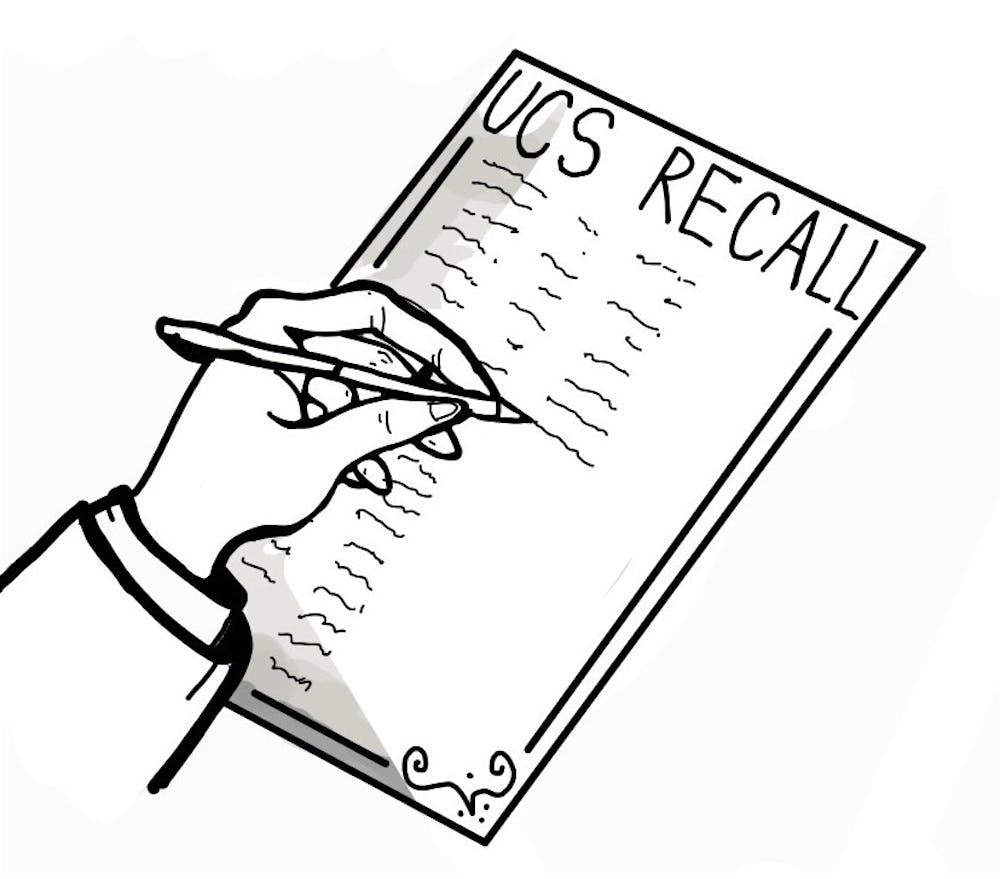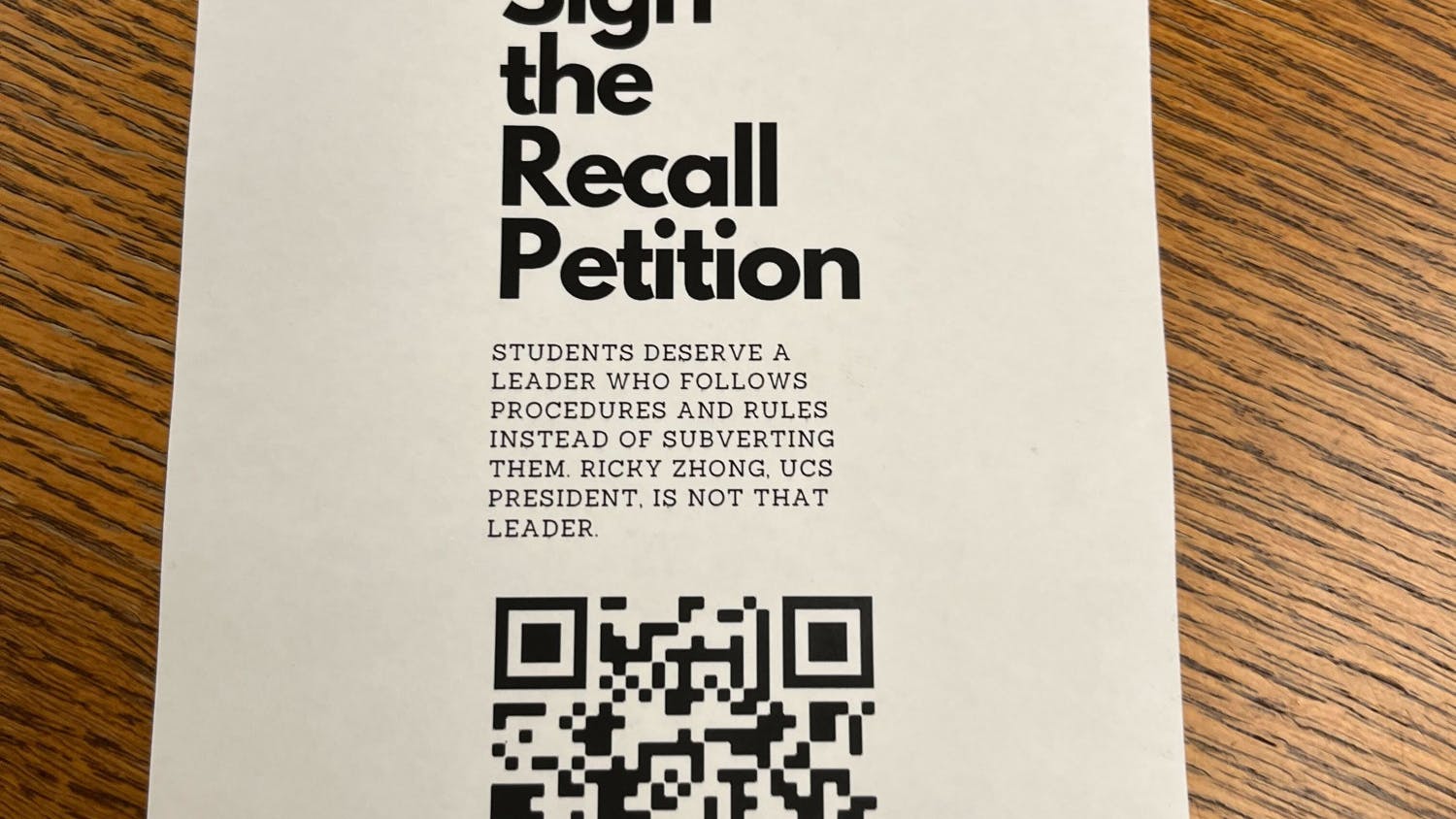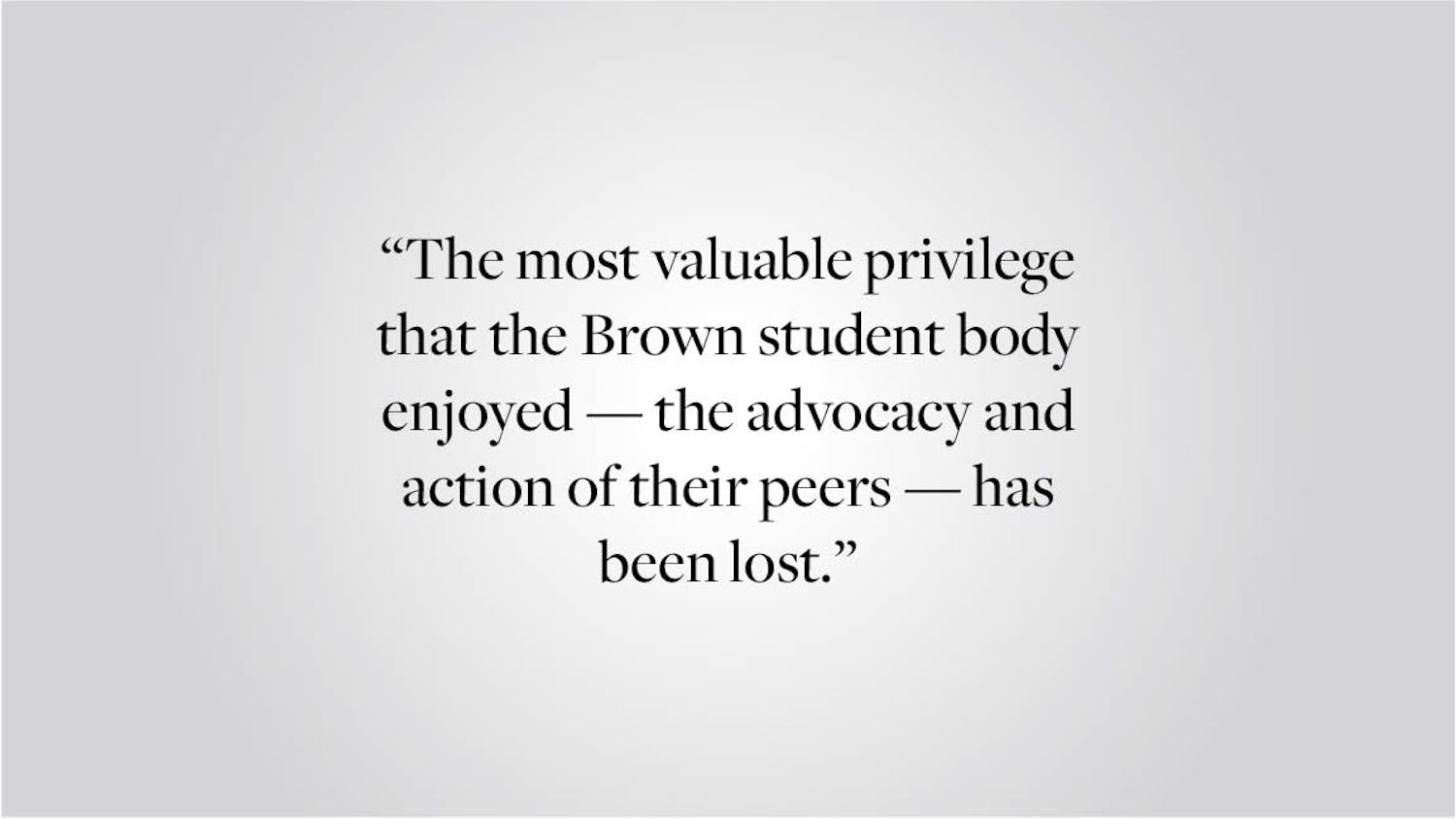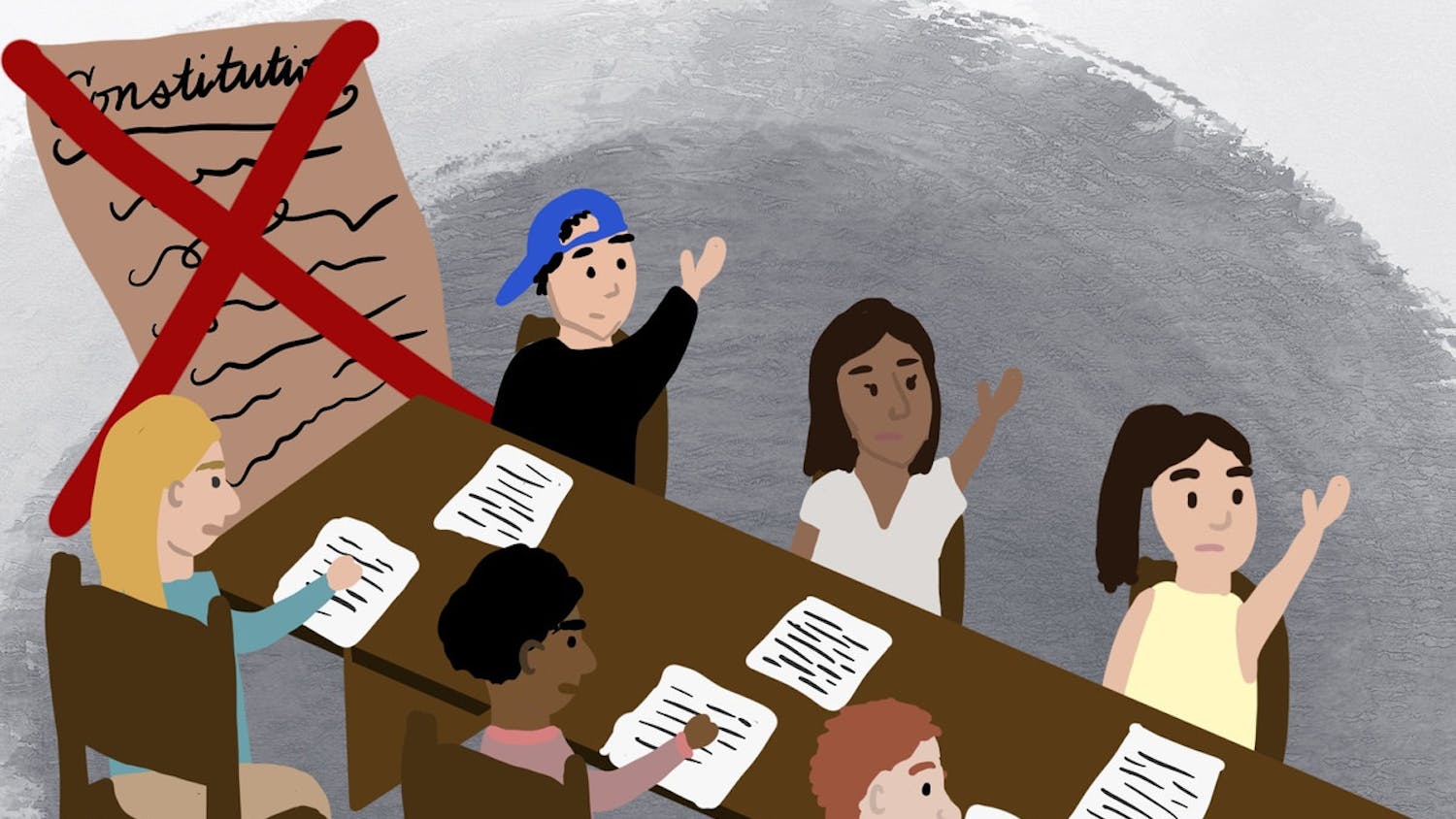A petition to initiate a recall election of Undergraduate Council of Students President Ricky Zhong ’23 has met the 300 signature requirement stipulated in the UCS Code of Operations, according to Chris Vanderpool ’24, who organized the recall — meaning the election will go forward.
Before the election can take place, UCS must verify the signatures and the petition itself, per the Code of Operations. Because there are no regular council meetings left this semester, the election will likely be held in the spring.
Vanderpool started the recall petition Sept. 30, shortly after UCS executive board members expressed concerns to The Herald about the council’s internal proceedings and Vanderpool published a Herald op-ed criticizing administrative changes within UCS.
Vanderpool said that while the first signatures were collected on the day he drafted the resolution, he almost gave up on the recall effort due to a lack of time. But on Nov. 11, an individual approached Vanderpool about issues they “experienced personally with UCS” and asked to help with gathering signatures, Vanderpool said.
That interaction was “pretty instrumental in helping me get over the final push” of meeting the 300 signature threshold, he said.
Validating the signatures and petition
The UCS Code of Operations states that a “recall petition must be presented by its sponsor(s) during a council meeting, at which the validity of the sponsorship procedure shall be determined by a simple majority vote of the council.”
According to UCS Elections Co-director Joon Nam ’23, “validity of the sponsorship procedure” refers to both the validity of signatures gathered and the petition itself.
Vanderpool hoped to present the signatures quickly and have UCS hold the recall election before next semester, “when people … still have (the issue) in their minds,” he said.
In a Nov. 19 email sent to UCS, which was shared with The Herald, Vanderpool requested to present the signatures at the council’s e-board meeting the following day.
But Vanderpool was unable to present the signatures at that meeting since there was not a quorum — the minimum number of members needed to be at the meeting to make proceedings valid — present. He said that he was told the Nov. 20 meeting would be this semester’s last e-board meeting — meaning that he has to wait until next semester to validate the signatures and the petition.
According to Zhong, UCS planned all their meetings at the beginning of the semester and Nov. 20 was scheduled to be the last e-board meeting because of conflicts on subsequent Sundays, when the group meets. Nov. 27 was Thanksgiving weekend, Dec. 4 is scheduled to be a UCS e-board dinner and Dec. 11 is during reading period.
Vanderpool expressed concerns that some students who signed the petition are graduating this semester, making their signatures invalid come the spring.
According to Elections Co-director Eli Sporn ’24, he and Nam suggested conducting a pre-verification of the signatures. While the validity of the petition has to be determined by the entire e-board, validating signatures is “more of a concrete, time-consuming process” that can be done before the first UCS e-board meeting next semester, Nam wrote in an email to The Herald.
But Zhong said that Vanderpool refused to share signatures with UCS when Nam and Sporn offered to pre-verify them.
“This means that we will be validating both the signatures and the petition (as part of the entire sponsorship process) during the first UCS e-board meeting next semester where we reach a quorum,” Nam wrote.
"I wouldn't give them the signatures" without being involved in the process, Vanderpool wrote in a message to The Herald. “This is because I’d like to protect the identities of those who signed to the extent that’s possible,” he added.
Internal special election to elect new president
The UCS Code of Operations states that “if a majority votes to recall the officer or member, then a vacancy shall be declared in that position and a special election held.”
According to Vanderpool, UCS has held all its special elections internally this year, including the election of its current chair of campus life and chair of equity and inclusion, “which means … that UCS (themselves) would get to choose who their next president would be,” he said.
But the code of operations’ section on special elections does not indicate they should be held internally, Vanderpool wrote in a message to The Herald. He pointed to article XII.6 of the UCS Constitution, which states: “All undergraduates have the right to vote in all elections for the council. This right shall not be revoked.”
The clause is “meant more of an anti-discrimination clause than anything else,” Zhong said. “If a position is supposed to be openly elected, then you cannot discriminate based (on) race or class or gender,” he added.
Zhong said that in previous years, many UCS elections were conducted internally or without participation of the entire student body, including the filling of the UCS vice president position in 2019 after the previous vice president resigned. He added that UFB has done the same, including the filling of the UFB vice chair role in 2021 and electing an at-large representative in 2022.
The code of operations also does not specify who can run for this special election, according to Vanderpool. “It concerns me that they can just re-elect (Zhong) to the position,” he said.
According to Zhong, the election would be like all other special elections, where “anybody is welcome to apply (and) interview for the position.” He added that though he would be technically allowed to run again for president, he “probably wouldn’t.”

Kathy Wang is the senior editor of community of The Brown Daily Herald's 134th Editorial Board. She previously covered student government and international student life as a University News editor. When she's not at The Herald, you can find her watching cooking videos or writing creative nonfiction.





